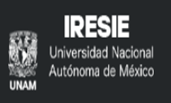Global overview of Burnout in teachers of physical education
DOI:
https://doi.org/10.35699/2238-037X.2019.9825Keywords:
Teaching work, Burnout, Physical EducationAbstract
In recent years, Burnout syndrome has spread almost as an epidemic in teachers around the world. Expectations and achievements at work collide with reality and produce frustration. This article had as objective to investigate the causal elements and effects of Burnout in Physical Education teachers from the prevalence of this syndrome in studies conducted in Brazil and in some countries of the world. In addition, he related the progression of the syndrome to the phenomenon of precariousness of global work. Data analysis was based on Dialectical Historical Materialism. The research was of bibliographic nature, with a qualitative approach on the obtained data. It concluded that the precariousness of teaching work is everywhere and that Burnout syndrome in Physical Education teachers presents similarities among teachers of this discipline throughout the world.
References
BAI, N. The relationship between school organizational climate and physical education teachers' burnout (Case study: Ramian-Iran). European Journal of Experimental Biology, v. 4, n. 1, p. 600-602, 2014.
BENEVIDES-PEREIRA, A. M. T. O estado da arte do Burnout no Brasil. Revista Eletrônica Interação Psy, ano 1, n. 1, p. 4-11, ago. 2003.
BOTH, J.; NASCIMENTO, J. V. Condições de vida do trabalhador docente em Educação Física do magistério público municipal de Florianópolis. Caderno de Educação Física, Marechal Cândido Rondon, v. 9, n. 16, p. 11-28, 1. sem., 2010.
BOURDIEU, P. La précarité est aujourd'hui partout: intervention lors des rencontres européennes contre la précarité. Grenoble, p. 12-13, dez. 1997.
BRASIL. Ministério da Saúde do Brasil. Doenças relacionadas ao trabalho: manual de procedimentos para os serviços de saúde. Brasília: MS, 2001. 580 p. (Série A. Normas e Manuais Técnicos, n. 114).
BREMM, L. T.; DORNELES, C. I. R.; KRUG, M. M. Síndrome de Burnout em professores de Educação Física. Revista Biomotriz, v. 11, n. 2, p. 66-83, ago. 2017.
BROUWERS, A.; TOMIC, W.; BOLUIJT, H. Job demands, job control, social support and self-efficacy beliefs as determinants of burnout among physical education teachers. Europe’s Journal of Psychology, v. 7, n. 1, p. 17-39, 2011.
BRUDNIK, M. Macro-paths of Burnout in Physical Education Teachers and Teachers of Other general subjects. Studies in physical culture and tourism, v. 17, n. 4, p. 353-365, 2010.
BRUDNIK, M. Professional Burnout in Female and Male Physical Education Teachers – a four-phase typological model. Human Movement, v. 12, n. 2, p. 188-195, 2011.
CASTILLO, I. et al. Passion for teaching, transformational leadership and burnout among physical education teachers. Journal of Sport Psychology, v. 26, n. 3, p. 57-61, 2017.
CIESLINSKI, R.; SZUM, E. Burned out or just frustrated? Reasons why physical educations teachers leave their profession. Physical Culture and Sport Studies and Research, v. 63, p. 29-35, 2014.
COLAKOGLU, F. F.; YILMAZ, T. Burnout levels of physical education teachers according to personal factors. Procedia – Social and Behavioral Sciences, n. 152, p. 409-414, 2014.
COSTA, A. Entre a dilapidação moral e a missão redentorista: o processo de alienação no trabalho dos professores do ensino básico brasileiro. In: COSTA, A.; FERNANDES NETO, E.; SOUZA, G. A proletarização do professor: neoliberalismo na educação. São Paulo: Sundermann, 2009.
FARSANI, M. S.; AROUFZAD, S.; FARSANI, F. A. Relação entre burnout com saúde mental e traços de personalidade entre professores de Educação Física. European Journal Experimental Biology, v. 2, n. 6, p. 2140-2144, 2012.
FREITAS, R. G. de. As condições de vida no trabalho e a saúde de professores de educação física do município de Belém. 2010. 114 f. Dissertação (Mestrado em Ciências Sociais) – Universidade Federal do Pará, Belém, 2010.
HA, Jae-Pil; KING, K. M.; NAEGER, D. J. The impact of burnout on work outcomes among South Korean physical education teachers. Journal of Sport Behavior. v. 34, n. 4, p. 343-357, dez. 2011.
HARVEY, D. A Brief History of Neoliberalism by David Harvey, Oxford University Press, 2005, 256 p.
KIM, J.; YOUNGS, P.; FRANK, K. Burnout contagion: Is it due to early career teachers' social networks or organizational exposure? Teaching and Teacher Education, n. 66. p. 250-260, 4 abr. 2017.
KUMAR LK, J.; MANOJ, TI. Burnout: as diferenças de magnitude e gênero entre professores de Educação Física nas escolas de ensino fundamental, superior e secundário do Estado de Kerala, Índia. International Journal of Physical Education, Sports and Health, v. 4, n. 4, p. 468-471, 2017.
MARX, K. Manuscritos econômicos filosóficos. São Paulo: Martin Claret, 2004.
MASLACH, C.; JACKSON, S. E. The measurement of experienced burnout. Journal of Occupational Behavior, New Jersey, v. 2, p. 99-113, 1981.
MASLACH, C.; SCHALFELI, W. B.; LEITER, M. P. Job Burnout. Annual Review of Psychology, Palo Alto, v. 52, p. 397422, 2001.
ÖLMEZ, E.; ÇAKMAK, U.; KEPOĞLU, A. The relationship between occupational burnout levels of job satisfaction of Physical Education Teachers in the case of Muğla Province. International Journal Physical Education Fitness Sports, v. 7, n. 1, p. 6-10, 2018.
PANAGOPOULOS, N.; ANASTASIOU, S.; GOLONI, V. Professional Burnout and Job Satisfaction among Physical Education Teachers in Greece. Journal of Scientific Research & Reports, v. 3, n. 13, p. 1710-1721, 2014.
PÊGO, F. P. L.; PÊGO, D. R. Síndrome de Burnout. Revista Brasileira de Medicina do Trabalho, n. 14 (2), p. 171-6, 2016.
PIRES, D. A.; MONTEIRO, P. A. P.; ALENCAR, D. R. Síndrome de Burnout em professores de Educação Física da região nordeste do Pará. Pensar a Prática, Goiânia, v. 15, n. 4, p. 8211113, out./dez. 2012.
SALGADO, S. S.; SALLES, F. L.; ALVES, C. F. A. A Educação Física e os fatores estressores do cotidiano escolar: situando professores e gestores. Motrivivência, ano XXIV, n. 39, p. 92-100, dez. 2012.
SÁNCHEZ-OLIVA, D. et al. Motivación y burnout en profesores de educación física: incidencia de la frustración de las necesidades psicológicas básicas. Cuadernos de Psicología del Deporte, v. 14, n. 3, p. 75-82, 2014.
SANTINI, J.; MOLINA NETO, V. A síndrome do esgotamento profissional em professores de Educação Física: um estudo na rede municipal de ensino de Porto Alegre. Revista Brasileira de Educação Física e Esporte, São Paulo, v. 19, n. 3, p. 209-22, jul./set. 2005.
SANTINI, J. Síndrome do esgotamento profissional: revisão bibliográfica. Movimento, Porto Alegre, v. 10, n. 1, p. 183-209, jan./abr. 2004.
SILVA, M. E. P. da. Burnout: por que sofrem os professores? Estudos e pesquisas em Psicologia, UERJ, Rio de Janeiro, ano 6, n. 1, 1. sem. 2006.
SINOTT, E. C. et al. Síndrome de Burnout: um estudo com professores de Educação Física. Movimento, Porto Alegre, v. 20, n. 2, p. 519-539, abr./jun. 2014.
SPITTLE, M.; KREMER, P.; SULLIVAN, S. Burnout in secondary school physical education teaching. Physical Education and Sport, v. 13, n. 1, p. 33-43, 2015.
TAPPER, J. Burned Out: why are so many teachers quitting or off sick with stress? The Guardian. United Kingdom, 13 maio 2018. Disponível em: https://www.theguardian.com/education/2018/may/13/teacher-burnout-shortages-recruitment-problems-budget-cuts. Acesso em: 1 jun. 2018.
TSIGILIS, N.; ZOURNATIZI, E.; KOUSTELIOS, A. Burnout among physical education teachers in primary and secondary school. International Journal of Humanities and Social Science, v. 1, n. 7, p. 53-58, jun. 2011. Edição especial.
VALÉRIO, F. J.; AMORIM, C.; MOSER, A. M. A síndrome de Burnout em professores de Educação Física. Revista de Psicologia da IMED, v. 1, n. 1, p. 127-136, 2009.
YILDIRIM, I. The Correlation between Organizational Commitment and Occupational Burnout among the Physical Education Teachers: the Mediating Role of Self-Efficacy. International Journal of Progressive Education, v. 11, n. 3, p. 119-130, out. 2015.













